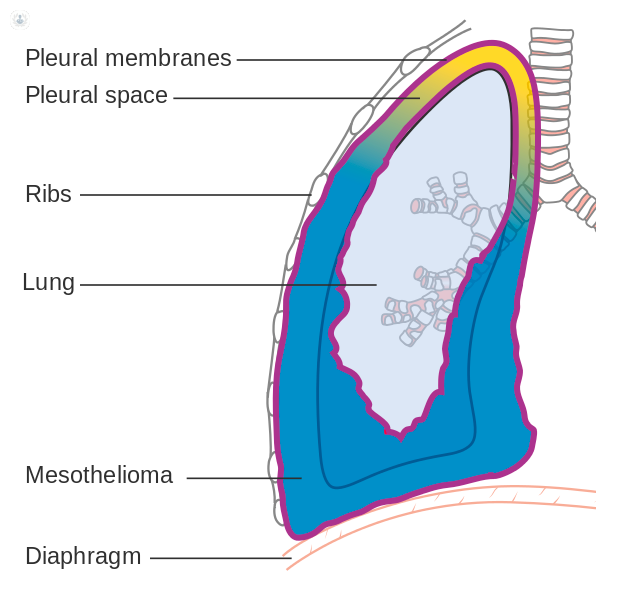

What is pleural mesothelioma?
Pleural mesothelioma is a rare malignant tumour affecting the pleura, the lining which surrounds each lung and the chest’s internal walls. The main cause of pleural mesothelioma is exposure to asbestos, a mineral which was often used for insulation or roofing. When it is extracted or removed, asbestos releases a fine dust that, if breathed in, can cause serious health damage, such as in case of pleural mesothelioma. This condition may appear many years after exposure to asbestos.

Prognosis
Unfortunately the outlook for mesothelioma tends to be poor, because it doesn't usually cause any obvious symptoms until late on, when tumour cells have already spread over to other organs and tissues.
What are the symptoms of pleural mesothelioma?
Symptoms of mesothelioma in the lining of the lungs include:
- shortness of breath
- weight loss
- a persistent cough
- fatigue
- muscle weakness
- coughing up blood (haemoptysis)
- hoarseness
- high fever
- chest pain
How is it diagnosed?
The doctor will start by looking at your medical history. In order to get an accurate diagnosis, you may require the following tests:
- chest X-ray scan
- chest CT scan with contrast medium
- magnetic resonance imaging (MRI) scan
- PET scan
What causes it?
Exposure to asbestos is the main cause of pleural mesothelioma. Other risk factors include:
- radiation from radiotherapy
- exposure to thorium dioxide
- exposure to erionite, a mineral found in Turkey.
How is it treated?
Treatment depends on what stage the tumour has reached and, more generally, your general state of health. In the modern day, pleural mesothelioma can be treated with surgery, radiotherapy and chemotherapy.
Which doctor should I talk to?
Pleural mesothelioma is treated by a team general surgeons, thoracic surgeons, oncologists and pulmonologists.
